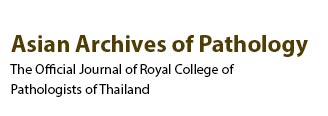[OA-04] Detection of a HIV false elite controller in Thai blood donors
Aphisit Thongthaisin1, Duangnapa Intharasongkroh2, Pokrath Hansasuta3, Jettawan Siriaksorn1 and Sasitorn Bejrachandra2
- Department of Laboratory Medicine, Facolty of Medicine, Cholalongkorn University and King Cholalongkorn Memorial Hospital, Bangkok, Thailand
- National Blood Centre, Thai Red Cross Society, Bangkok, Thailand
- Department of Microbiology, Facolty of Medicine, Cholalongkorn University and King Cholalongkorn Memorial Hospital, Bangkok, Thailand
National Blood Centre, Thai Red Cross Society screens blood samples from every donor for HIV with both serology and nucleic acid testing (NAT). Potential elite controllers (EC) are donors who tested reactive by serology, but non-reactive by NAT. There is no study in Thailand to date to find the cause of this group's test resolts whether they are due to genetics (true EC) or antiretroviral therapy (ART) drugs (false EC). The aim of this study was to assess the prevalence of HIV false EC in HIV serology reactive Thai blood donors. Stored frozen plasma samples from potential EC collected during Joly to December 2021 were tested for nucleoside reverse transcriptase inhibitors (NRTIs). Positive sample was further tested for non-nucleoside reverse transcriptase inhibitors (NNRTIs) and protease inhibitors (PIs). In addition, Geenius HIV-1/2 confirmatory assay was also performed for reactive sample. Of 70 potential ECs from total of 315,170 donors (0.02%) during that period, there was one sample (1.43%) that tested positive for NRTIs (tenofovir and emtricitabine). Efavirenz was also found on further testing for NNRTIs. Geenius assay was positive for HIV-1. In conclusion, the prevalence of false EC due to NRTIs was 1.43% in HIV serology reactive only Thai blood donors.
Keywords: antiretroviral therapy; elite controller; HIV


